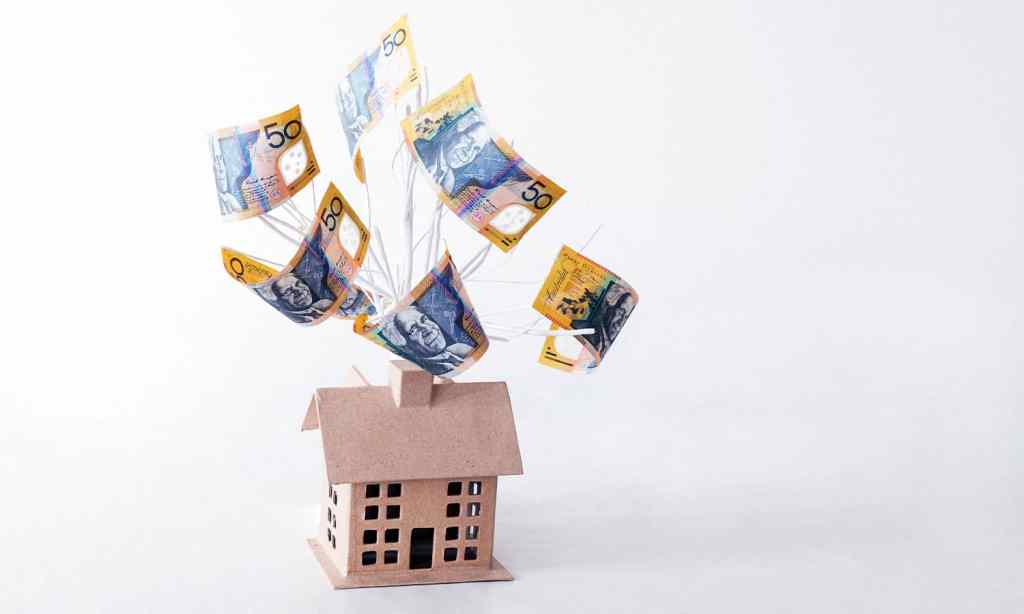One of the biggest conversations in Australia right now is around how crazy expensive it is to simply exist.
It all kicked off at the end of April when the new inflation figures were released. In simple terms, inflation tracks the overall cost of goods and services. Our latest inflation figures showed an annual inflation rate of 5.1% — the highest rate we’ve recorded in over a decade.
In super general terms, this means something that cost $10 this time last year, now costs $10.51 (on average).
The government wants to keep a lid on inflation because it puts a lot of pressure on everyday people to pay for their lives. It’s fine if your wages or income is increasing in line with inflation, but right now that’s not the case; wage growth is pretty low.
So the Reserve Bank of Australia stepped in and increased the cash rate by 0.25%.
The reason they do this is to take some of our spending money away.
The thinking is; if we’re spending more on our home loan payments, we’ll have less money left over to spend on groceries and cigarettes and coffee and wine and clothes. This, in turn, will take some of the demand for these things away and inflation will stop soaring. It’s much more complex than this, but this gives you a general idea.
This increase means it now costs the banks 0.25% to borrow the money that they lend to you. Therefore, your home loan is going to increase by 0.25%, as the big four banks have passed this increase directly on to their customers.
Depending on how much you owe on your home loan, if you have a variable mortgage (not a fixed rate one), your monthly repayments have just gone up. You can use a home loan calculator to work out exactly how much you’ll be paying with this 0.25% increase, but we’ve done the maths here for you as a general guide:
| Interest rate | $500,000
home loan |
$750,000
home loan |
$1m home loan |
| 2.1% variable rate
(cash rate 0.1% – before the rate increase) |
$1,873 | $2,810 | $3,746 |
| 2.35% variable rate
(new cash rate announced May 3) |
$1,937 (up $64/m) |
$2,905
(up $95/m) |
$3,873
(up $127/m) |
Based on a 30-year, principal and interest, owner-occupier loan.
The bottom line is, your home loan is now a little bit more expensive.
But it’s set to get a LOT more expensive.
Economists from the major banks are predicting that interest rates will increase by up to 2% by the end of next year. This could see your monthly mortgage repayments increase quite a lot. Again, exactly how much will depend on your loan value, but here’s a rough guide:
| Interest rate | $500,000
home loan |
$750,000
home loan |
$1m home loan |
| 2.1% variable rate
(cash rate 0.1% – before the rate increase) |
$1,873 | $2,810 | $3,746 |
| 2.35% variable rate
(new cash rate announced May 3) |
$1,937 (up $64/m) |
$2,905
(up $95/m) |
$3,873
(up $127/m) |
| 2.5% variable rate (cash rate 0.5%) |
$1,975 (up $102/m) |
$2,963
(up $153/m) |
$3,951
(up $205/m) |
| 3% variable rate (cash rate 1.0%) |
$2,108 (up $235/m) |
$3,162
(up $352/m) |
$4,216
(up $470/m) |
| 3.5% variable rate (cash rate 1.5%) |
$2,245 (up $372/m) |
$3,368
(up $558/m) |
$4,490
(up $744/m) |
| 4% variable rate (cash rate 2.0%) |
$2,387 (up $514/m) |
$3,580
(up $770/m) |
$4,774
(up $1,028/m) |
Based on a 30-year, principal and interest, owner occupier loan.
Are You Better Off Fixing Your Rates Now?
This is the question on every mortgage holder’s lips.
Unfortunately, fixed rates are quite a bit higher now than they were six months ago, so if you fixed your home loan now, you’ll pay more immediately.
A quick browse of the fixed rate loans on Finder’s comparison table shows that many 1-2 year fixed rates are available for 2.99-3.49%.
This means you’d pay $2,105 — $2,242 for a $500,000 loan — which is a big jump from the $1,937 you’re paying now.
Those who are fixing their rates now are doing so because they want to insure themselves against rates going even higher, like the bottom rows of our table (which they could).
Essentially, fixing your home loan now means you’ll pay a little more straight away in the hope that you won’t pay a lot more in a year or two.
The right choice for you will depend on your financial situation, but if you’re really unsure what to do:
- Call your bank and ask if the rate you’re paying now is the best they can possibly offer you, to help you potentially start saving money right away.
- Compare your current rate and repayments to what else is available. It’s a very competitive home loan market and you could stave off some of these rate rises by getting a cheaper deal today.
Sarah Megginson is the senior editor for money at Finder. She has been a finance and property journalist for more than 15 years.
Read more stories from The Latch and subscribe to our email newsletter.

